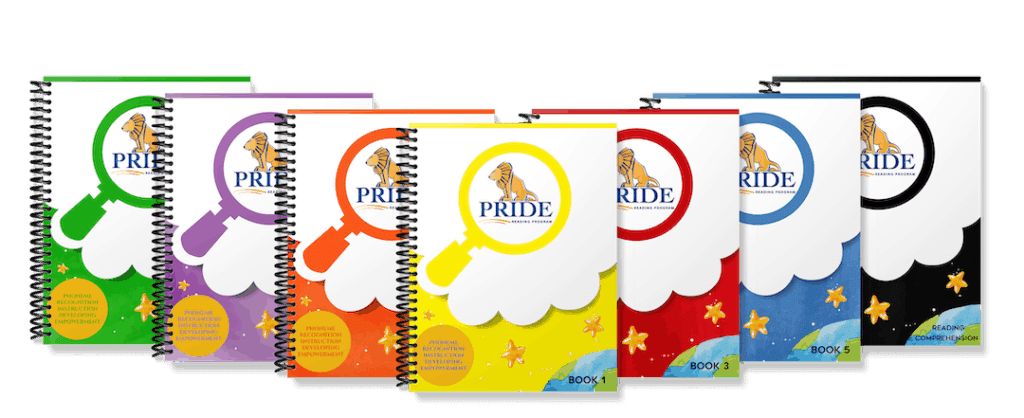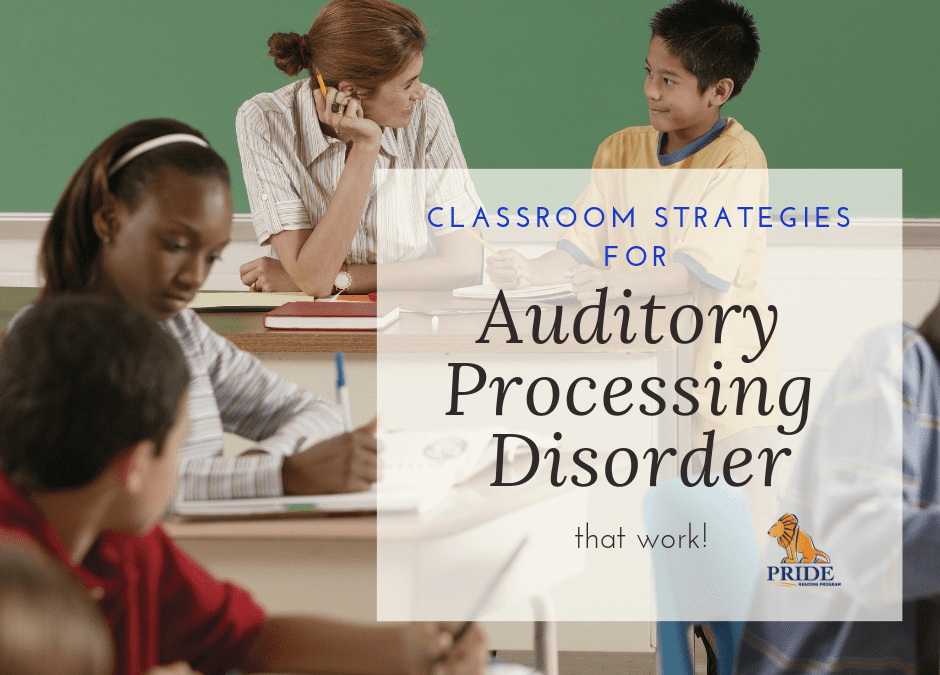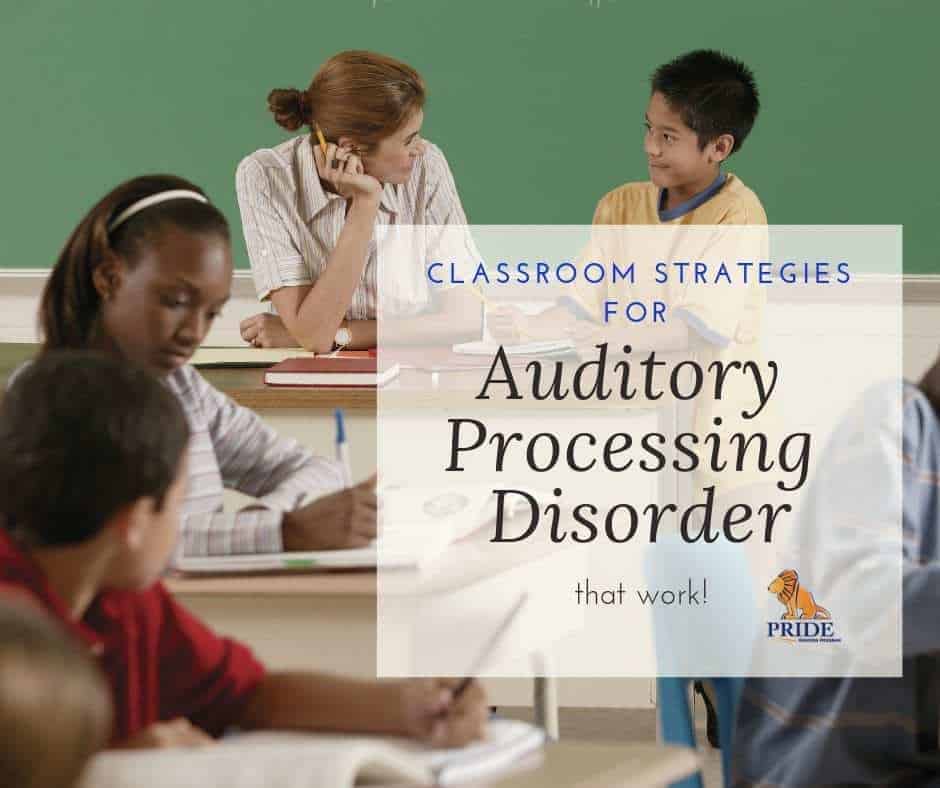Almost every school activity, including listening to teachers, interacting with classmates, singing along in music class, following instructions in physical education, etc. depends on the ability for children to process sounds and have a strong auditory system in learning. But what happens if this auditory system has deficits? On today’s post, I am going to share with you everything you need to know about auditory processing disorder classroom strategies that will help your students learn best.
“What is Auditory Processing Disorder?”
Auditory Processing Disorder (APD) is a very common learning disability and affects about 5% of school-age children. Research suggests that many children with learning difficulties might have an undiagnosed auditory processing disorder.
Auditory Processing Disorder can present itself with many different symptoms and behaviors. Often these behaviors resemble those seen with other learning challenges, like language difficulties, attention problems and dyslexia.
Most children with auditory processing difficulties show only a few of the following behaviors. No child will show all of them. However, any child who displays several of these symptoms should be carefully evaluated for auditory processing disorder.
- Delayed speech.
- Persistent articulation errors.
- Abnormally soft, loud, flat, formal, or “pedantic” speaking voice.
- Difficulty conducting casual conversations.
- Difficulty reading or spelling due to problems discriminating word sounds.
- Difficulty following oral directions.
- Difficulty organizing behaviors.
- A tendency to appear quiet, distracted, or off topic during group discussions or to interrupt or blurt out answers.
- Long delays before responding to questions or instructions.
- Preferences for nonverbal tasks or a markedly higher performance IQ than verbal IQ.
- Difficulty taking notes.
- Worsening performance in higher grades as oral instruction load and receptive language demands increase.
- Difficulties with inference, abstraction, and figurative language.
- Difficulty hearing in the presence of background noise.
- Difficulty understanding what’s said.
- A tendency to ask for restatement or clarification, or repeatedly saying “what?” or “huh?”
- Marked difficulty understanding speakers with particularly high or low-pitched voices or with prominent accents.
“What are Some Difficulties for Students with Auditory Processing in the Classroom?”
Difficulties Learning to Read and Spell
Children with Auditory Processing Disorders have difficulties distinguishing the sounds or phonemes in spoken words, especially those in complex words and sentences. This is referred to as Auditory Discrimination Deficits.
If a child has difficulties discriminating sounds in language, then words will sound unclear or distorted as well as many will sound alike. This in turn will affect a child’s development of language skills. They may have trouble speaking and listening, because of problems learning basic grammar and word meanings.
Many vowel and consonant sounds may sound the same to them, especially when spoken quickly. As a result, not only will they have difficulty hearing the differences between words that sound alike (think, thing, sink, thin) they will also have difficulty understanding the connections between those words and the letters used to represent them.
This is why children with Auditory Processing Disorder often have trouble with reading and spelling. Since they cannot hear the sound distinctions between words, the rules linking sounds to letters and letter groups can be hard for them to master.
Difficulties with Background Noises
Most children with Auditory Processing Disorder have difficulty hearing in the presence of background noise. This is referred to as Auditory Figure-Ground Deficits.
Although the children often hear well enough at home or in quiet environments, they may appear hard of hearing or even functionally deaf in noisy environments such as school.
Difficulties with Focus and Attention
In the classroom, a child with Auditory Processing Deficits will have great difficulties staying focused on a listening task. This is referred to as Auditory Attention Deficits.
If a teacher is giving a lecture, for example, the student might listen in for a few minutes but then drift off and daydream missing out on significant amounts of information.
Difficulties with Memory
Students with Auditory Processing Challenges have great difficulties remembering information given. This is referred to as Auditory Memory Deficits.
If the teacher says, “Get a piece of paper and a pencil out of your desk and write down your spelling words,” the student may get confused because there are too many commands at once. Impairments in the auditory memory deficits can severely weaken not only long-term memory but also language development and comprehension.
“What are Some Auditory Processing Disorder Classroom Strategies?”
1. Use Phonological Awareness
Use lots and lots of phonological awareness activities. What does this mean? Phonological awareness is the ability to identify and manipulate the individual speech sounds into spoken words.
Kids with auditory processing disorder often drop or add sounds when spelling or reading words so it is really important for your child to isolate each individual sound. Phonological awareness includes:
Identify rhymes – “Tell me all of the words you know that rhyme with the word “cot.”
Listening for sounds – “Close your eyes as I read some words to you. When you hear the “s ” sound, raise your hand.
Manipulating sounds in words by adding, deleting or substituting – “In the word NEST, change the N to B. (best). Or…Say the word dash. Can you change the /a/ to /i/? (dish)
Separate syllables – “How many syllables does the word candy have? Say each syllable.”
Listening for beginning, middle and ending sounds – “What sound do you hear at the end of the word sail?”(l)
To learn more about this topic, including specific activities and teaching ideas that you can use with your students, you can read my previous post:
>>What is Phonological Awareness
2. Teach with Multisensory Techniques
Multisensory means having your student hear it, say it, touch it and move during every lesson. Why is this so effective for your students? Kids with auditory processing need to learn in a different way.
By using multisensory materials and activities you are giving your student an opportunity for the information you are teaching them to “stick.” Using all of the child’s senses, engages their entire body along with their brain. This way they make a memory that lasts and stays with them. The more senses you have your students use, the stronger this memory will be.
Here are a few multisensory strategies that you can try out:
- Use trays filled with salt or sand and have your student write words or skills in these.
- Build words with wooden letters, blocks, legos or puzzle pieces.
- Have your student write on their palm, use arm tapping, or you can have your student spell words while at the same time doing a jumping jack or bouncing a ball.
- When teaching specific skills, use letter tiles and flashcards.
[et_bloom_inline optin_id=”optin_4″]
Use the Right Curriculum
While there are many really great reading and phonics programs for children on the market, most of these are not geared towards children with auditory processing. This is probably the most important auditory processing disorder classroom strategy that you can provide for your student!
The best choice is an Orton-Gillingham program. Orton-Gillingham is a really structured, step-by-step, repetitive and multisensory approach. This means that when the kids are learning to read, they learn each skill individually. They see it, say it, hear it and move with it.
They also practice it over and over again until it really “sticks.” For more information on Orton-Gillingham, you can read my previous posts:
Show Me an Orton-Gillingham Lesson!
The Science of Reading: What All Teachers Should Know
Play Attention, Memory, Sequencing and Focus Games
You can play some really fun games in the classroom that actually help students with auditory processing disorder improve many skills. For a complete list, please check out my post: Improve Auditory Processing with These Fun Activities.
I hope you enjoyed this post today on Auditory Processing Classroom Strategies!
In Summary… Students with Auditory Processing Disorder need to learn in a different way. They need to be taught phonological awareness so that they have a strong reading foundation and a strong concept of the sounds of each phonogram in the English language.
They also need to be taught with multisensory instruction and they need an Orton-Gillingham curriculum to learn to read and spell.
Please don’t leave without checking out the PRIDE Reading Program. The PRIDE Reading Program is an Orton-Gillingham curriculum that is used by teachers, tutors, and homeschooling parents worldwide with great success.





We have a child in foster care. She just turned 13, is on academic and behavioral IEPs. We noticed she interrupts with extraneous comments when others are conversing, is functionally illiterate, and often confuses sounds in words. “I am so nature (instead of mature)” or “I promise I won’t egret that (instead of regret). She has work arounds a but we want to advocate for the right help for her. Where should we start?
Hi, Tammy! It’s fantastic that you’re looking for ways to advocate for your foster child. Without knowing her diagnoses, we can’t really make a recommendation, but mixing up syllables is a phonological processing issue that can be indicative of auditory processing or dyslexia. Here’s a link to a guest-blog an educational attorney wrote for us a while back: https://pridereadingprogram.com/should-you-attend-an-iep-meeting/ and another to dyslexia accommodations: https://pridereadingprogram.com/classroom-accommodations-for-children-with-dyslexia/.
my student is an adult with good decoding skills comprehension and memory (6th grade level)but she cannot hear difference between long and short vowels . What strategies can/should I use with her as she wants to improve reading skills
Clare, you might want to teach each vowel in isolation starting with short vowels and not introducing long vowels until the short vowels are learned. We offer a PAR program (PRIDE Primary Accelerated Review) which is designed to help older students quickly review and fill gaps. This includes short and long vowels.
Hello!
What types of modifications could be added on a childs IEP to support them in their writing skill? What are some ideas a writing teacher should have and use when there is a student with CAPD in the class?
Our son is in 6th grade and he struggles with writing(he has severe CAPD). Is it fair to hold a child with severe CAPD to the same standard as his peers without CAPD? I just witnessed him suffer thru a writing assignment that counted as a quiz grade and lowered his average into the 50s. He’s currently doing remote learning. The assignment was a nightmare for a child with CAPD.
To elaborate on that I mean they(directions) were not simplified, no bullet prompts, no visuals and the directions, the story prompt and the grading key were jammed packed on top of one another with no real separation. It was a nightmare for someone with CAPD. Also there were no graphic organizers, no visuals and no sample of what it should look like. My son couldn’t get past the directions and what he was suppose to do. Why should that count against him and why should the teacher grade his assignment as is without trying to offer support or try to assess him maybe using modifications due to CAPD?
Is it fair to hold a student with a severe CAPD to the same standard as his peers?
I’m interested in any resources you can point me to and your feedback.
Thank you!
Lisa
Lisa, a few of the most common modifications on an IEP for writing include:
1. Use worksheets that require minimal writing.
2. Use fill-in questions with space for a brief response rather than an essay.
3. Find a ‘designated notetaker’ or picture of teacher’s notes.
4. Omit assignments that require copying
5. Extra time on testing
6. Use of technology
A good website for you to visit with more information would be: https://www.wrightslaw.com/
Do you have any suggestions for how I can help a student with APD learn to match a tone in music class?
Great question! You can try having the student listen to music and memorize the lyrics to a song. This is a good exercise. If the student is comfortable with the lyrics first.. then focusing on the tone will be easier. Good Luck!